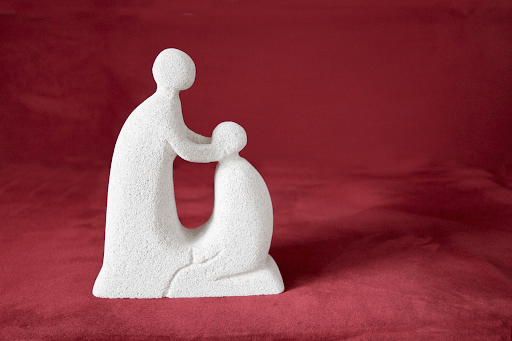Our affiliated congregations and ministries, ministers, and members represent a diverse range of theology, perspectives, and worship within the Christian Universalist tradition. Some condense our doctrinal distinctives to just seven words: “Through Christ, God reconciles all to Himself.” Our official version, however, is a bit longer:

God
We believe in a loving and compassionate God who reaches out to us through the teachings of Jesus Christ. Through Jesus, we see God’s nature of unconditional love, mercy, forgiveness, and justice. As we seek to know and love God, we can trust in the absolute truth, benevolent purpose, and meaningful existence that God provides, and be transformed by God’s love.
John 3:16-17, 1 John 4:8, Matthew 11:28-30, Psalm 103:8, Ephesians 2:4-5, Isaiah 1:18, Micah 6:8, Romans 12:2.

Golden Rule
The teachings of Jesus emphasize the importance of loving and serving one another as He loves us, and this principle can be found in many other religions and philosophies. By treating others the way we would wish to be treated, we extend love, compassion, and forgiveness to all people, and live a life of meaning and purpose.
Matthew 7:12, Luke 6:31, Mark 12:31, Romans 13:10, Galatians 5:14.

Divine Justice and Life After Death
When people fail to follow God’s commandments–for example, by not loving their neighbors as themselves–they experience negative consequences, either in this life, or in the next. However, all people will ultimately be restored to God’s Kingdom, in accordance with divine love and grace.
Galatians 6:7, Romans 12:19, Romans 2:6, 2 Corinthians 5:10, Revelation 20:12, 2 Peter 3:9.

Universal Salvation
We believe in the full and final triumph of God’s mercy and forgiveness over the powers of sin and death through Jesus Christ. No human being will be condemned to eternal torment or separation from God.
1 Timothy 4:10, Romans 5:18, Colossians 1:19-20, 1 Corinthians 15:22, 1 John 2:2.

Human Nature and Destiny
We believe every person is a child of God, whose loving grace is granted to all. Every person will eventually be reconciled with God through Jesus Christ, into whose image all humanity shall be transformed.
Romans 8:29-30, Colossians 1:19-20, 1 Timothy 2:3-4, 1 Corinthians 15:22, 2 Peter 3:9, Ephesians 2:10.

The Mystery of Faith
We believe in the reality and meaningfulness of the spiritual world and celebrate miracles such as the birth and resurrection of our Lord and Savior, Christ Jesus. While we reject a purely materialistic view of the cosmos, we recognize the validity of both scientific investigation and spiritual experiences as methods of discovering truth.
1 Corinthians 2:7, 1 Corinthians 1:22-24, John 20:29, Romans 11:33, Hebrews 11:1, Psalm 19:1, 1 Thessalonians 5:21.

The Foundation of Our Beliefs
We hold that Christian Universalism is both firmly rooted in the Bible and supported by the beliefs of the early church.
1 Timothy 2:3-4, Romans 5:18, Colossians 1:19-20, 1 Corinthians 15:22, 2 Peter 3:9, Ephesians 1:10.
There are also some broadly held, but inaccurate, beliefs that have circulated around most of Christianity for far too long. These have nothing to do with why we are Christian Universalists, but they are areas where we feel called to help correct broad misunderstandings of Scripture and the Church:

Human Diversity: The Scriptural Foundation
Every person is created in the Divine Image. Scripture does not endorse any form of bias, hatred, or discrimination on the basis of race, gender, gender identity, age, class, nationality, sexual orientation, physical or mental ability, and any other characteristic of human diversity. All congregations, clergy, and members pledge the same.

The State Should Not be the Enforcement Arm of the Church
The Church can and should speak-out on matters of human rights: The Exodus from Egypt, and return from Babylon were both about human rights—slavery. Esther’s story touches-on both the value of women, and the human right of self-defense. However, we disagree with religious groups who would deploy government force against those who don’t share their religious convictions.
